Fleurs du Mal Magazine


Or see the index
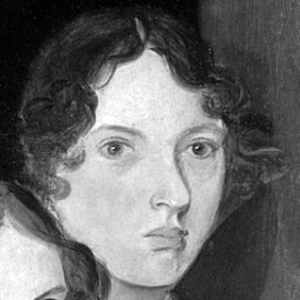
To a Wreath of Snow
O transient voyager of heaven!
O silent sign of winter skies!
What adverse wind thy sail has driven
To dungeons where a prisoner lies?
Methinks the hands that shut the sun
So sternly from this morning’s brow
Might still their rebel task have done
And checked a thing so frail as thou.
They would have done it had they known
The talisman that dwelt in thee,
For all the suns that ever shone
Have never been so kind to me!
For many a week, and many a day
My heart was weighed with sinking gloom
When morning rose in mourning grey
And faintly lit my prison room
But angel like, when I awoke,
Thy silvery form so soft and fair
Shining through darkness, sweetly spoke
Of cloudy skies and mountains bare;
The dearest to a mountaineer
Who, all life long has loved the snow
That crowned her native summits drear,
Better, than greenest plains below.
And voiceless, soulless, messenger
Thy presence waked a thrilling tone
That comforts me while thou art here
And will sustain when thou art gone
Emily Brontë
(1818 – 1848)
To a Wreath of Snow
• fleursdumal.nl magazine
More in: # Classic Poetry Archive, 4SEASONS#Winter, Archive A-B, Archive C-D, Brontë, Anne, Emily & Charlotte

Winter – A Dirge
The wintry west extends his blast,
And hail and rain does blaw;
Or, the stormy north sends driving forth
The blinding sleet and snaw:
While, tumbling brown, the burn comes down,
And roars frae bank to brae;
And bird and beast in covert rest,
And pass the heartless day.
“The sweeping blast, the sky o’ercast,”
The joyless winter-day
Let others fear, to me more dear
Than all the pride of May:
The tempest’s howl, it soothes my soul,
My griefs it seems to join;
The leafless trees my fancy please,
Their fate resembles mine!
Thou Power Supreme whose mighty scheme
These woes of mine fulfil,
Here, firm, I rest; they must be best,
Because they are Thy will!
Then all I want—O do Thou grant
This one request of mine.—
Since to enjoy Thou dost deny,
Assist me to resign.
Robert Burns
(1759 – 1796)
Winter – A Dirge
• fleursdumal.nl magazine
More in: # Classic Poetry Archive, 4SEASONS#Winter, Archive A-B, Archive A-B, Burns, Robert
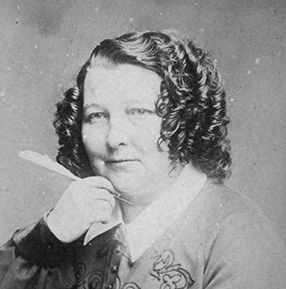
Winter
We know ’tis good that old Winter should come,
Roving awhile from his Lapland home;
’Tis fitting that we should hear the sound
Of his reindeer sledge on the slippery ground:
For his wide and glittering cloak of snow
Protects the seeds of life below;
Beneath his mantle are nurtured and born
The roots of the flowers, the germs of the corn.
The whistling tone of his pure strong breath
Rides purging the vapours of pestilent death.
I love him, I say, and avow it again,
For God’s wisdom and might show well in his train.
But the naked—the poor! I know they quail
With crouching limbs from the biting gale;
They pine and starve by the fireless hearth,
And weep as they gaze on the frost-bound earth.
Stand nobly forth, ye rich of the land,
With kindly heart and bounteous hand;
Remember ’tis now their season of need,
And a prayer for help is a call ye must heed.
A few of thy blessings, a tithe of thy gold,
Will save the young, and cherish the old.
’Tis a glorious task to work such good—
Do it, ye great ones! Ye can, and ye should.
He is not worthy to hold from heaven
The trust reposed, the talents given,
Who will not add to the portion that’s scant,
In the pinching hours of cold and want.
Oh! listen in mercy, ye sons of wealth,
Basking in comfort and glowing with health;
Give whate’er ye can spare, and be ye sure
He serveth his Maker who aideth the poor.
Eliza Cook
(1818 – 1889}
Winter
From: Melaia and Other Poems (1840)
• fleursdumal.nl magazine
More in: # Classic Poetry Archive, 4SEASONS#Winter, Archive C-D, Archive C-D
En créant en 1635 un jardin des plantes médicinales à Paris, directement placé sous son autorité, Louis XIII fonde non seulement l’une des plus anciennes institutions scientifiques de France avant l’Académie des Sciences (1666) et l’Observatoire de Paris (1667), mais aussi l’une des plus modernes.
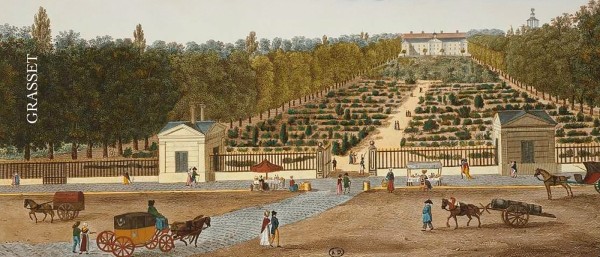
Des cours gratuits, donnés en français et non plus en latin au tout-venant : du jamais vu, qui fait froncer les sourcils à la Sorbonne! Car le succès est immédiat, les carabins s’en donnent à cœur-joie de disséquer des cadavres, de ridiculiser les Diafoirus, de découvrir une sexualité aux plantes: médecine et botanique ne font qu’un au XVIIème siècle et c’est le premier médecin du roi, Guy-Crescent Fagon, qui administre le jardin jusqu’à la fin du règne de Louis XIV.
Au XVIIIème siècle, c’est la surproduction de tout : des espèces végétales, animales et minérales rapportées par ces missions scientifiques qui sillonnent l’univers, des cabinets de curiosité des grands de ce monde, des touristes qui affluent de toute l’Europe au jardin des Plantes pour rencontrer Buffon, l’auteur d’un des best-sellers de son temps, une Histoire naturelle en 36 volumes qui ignore sèchement son contemporain, le savant suédois Carl von Linné dont la classification fait encore autorité.
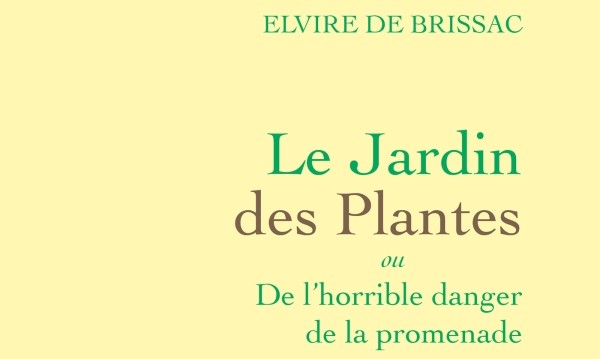
Nationalisé à la révolution, sauvé par Lakanal qui voit surtout son aspect éducatif, voici le jardin Royal transformé en muséum. Douze professeurs vont chacun occuper une chaire et administrer l’institution pendant deux cents ans et aucun des promeneurs, peintres ou écrivains qui découvrent avec délices au XIXème siècle la ménagerie, les grandes galeries, le jardin d’Acclimatation (1860), au bois de Boulogne, le musée d’Ethnographie, ancêtre du musée de l’Homme, au Trocadéro (1878) ou le zoo de Vincennes (1934) ne se doute des querelles qui agitent les coulisses de l’établissement et se nomment fixisme, transformisme, Darwinisme, colonialisme, adaptation ou refus de la révolution industrielle, déclin scientifique.
L’homme est-il un singe? La France apporte-t-elle aux peuples colonisés l’ombre ou la lumière? A quoi sert le muséum ? Comme la pluie qui tombe dans les grandes galeries, faute de crédits, après la Seconde Guerre mondiale et surtout après les Trente Glorieuses, l’histoire naturelle est-elle en train de tomber dans l’oubli?
L’ADN découvert en 1953, qui révèle tout de vous, de votre passé et de celui du vieux renard empaillé ou de la roche emprisonnée, fait-il encore de nous des être humains ? La numérisation viendra-t-elle à bout du trop plein des musées ? Va-t-elle rendre à leurs pays d’origine tout ce qui en a été emporté? Et la terre qui se décroche par mottes entières sous nos yeux, où va-t-elle? C’est dire qu’au XXIème siècle, le muséum a encore devant lui de beaux jours et de belles promenades parmi les dangers de la terre. « [Celle-ci] peut bien disparaître, disait August Strinberg en 1894, si le jardin des Plantes est épargné, la création sera sauvée. » Puisse l’avenir lui donner raison!
Le Jardin des Plantes
par Elvire de Brissac
Grasset Ed.
Paru le: 10 Janvier 2024
Format: 140 x 205 mm
304 pages
Ean: 9782246837244
Prix: € 22.00
• fleursdumal.nl magazine
More in: - Book News, - Bookstores, Archive A-B, Department of Curious Nature, Natural history, NONFICTION: ESSAYS & STORIES
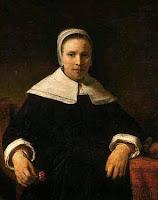
Winter
Cold, moist, young phlegmy winter now doth lie
In swaddling clouts, like new-born infancy;
Bound up with frosts, and fur’d with hail & snows,
And, like an infant, still it taller grows.
December is my first, and now the sun
To the southward Tropick his swift race doth run.
This month he’s hous’d in horned Capricorn,
From thence he ’gins to length the shortened morn,
Through Christendom with great festivity,
Now’s held (but guessed) for blest Nativity.
Cold, frozen January next comes in,
Chilling the blood, and shrinking up the skin.
In Aquarius now keeps the long-wish’d sun,
And northward his unwearied course doth run.
The day much longer than it was before,
The cold not lessened, but augmented more.
Now toes and ears, and fingers often freeze,
And travelers their noses sometimes leese.
Moist snowy February is my last,
I care not how the winter-time doth haste.
In Pisces now the golden sun doth shine,
And northward still approaches to the line.
The rivers ’gin to ope, the snows to melt,
And some warm glances from his face are felt;
Which is increased by the lengthen’d day,
Until by’s heat, he drive all cold away.
And thus the year in circle runneth round;
Where first it did begin, in th’ end its found.
Anne Bradstreet
(1612 – 1672)
Winter
• fleursdumal.nl magazine
More in: # Classic Poetry Archive, 4SEASONS#Winter, Archive A-B, Archive A-B, Bradstreet, Anne
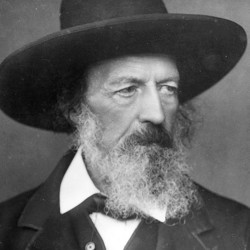
The Eagle
He clasps the crag with crooked hands;
Close to the sun in lonely lands,
Ring’d with the azure world, he stands.
The wrinkled sea beneath him crawls;
He watches from his mountain walls,
And like a thunderbolt he falls.
Alfred Lord Tennyson
(1809-1892)
The Eagle
• fleursdumal.nl magazine
More in: Archive S-T, Archive S-T, Department of Birds of Prey, Department of Ravens & Crows, Tennyson, Alfred Lord

freda kamphuis
friends
• fleursdumal.nl magazine
More in: Archive K-L, Archive K-L, Freda Kamphuis, Freda Kamphuis, Kamphuis, Freda, Natural history, Photography

freda kamphuis
closest-up
• fleursdumal.nl magazine
More in: Archive K-L, Freda Kamphuis, Freda Kamphuis, Kamphuis, Freda, Natural history, Surrealisme
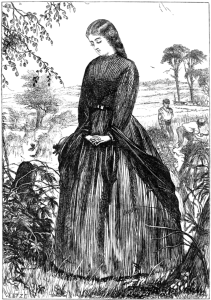
The Seasons
Spring—and her heart is singing
A song full of joyous cheer;
For each brightening day seems bringing
The hope of her life more near.
Summer—her heart is waiting;
Its dream is yet unfulfilled:
But her trust knows no abating,
Though the Spring’s glad song is stilled.
Autumn—her heart is burning
With the fever of restless fears;
And the darkened days returning
Bring her no relief save tears.
Winter—her heart is broken:
The struggles of Hope are o’er;
But the love that was here unspoken
Will be hers where hearts bleed no more.
Evelyn Forest
(Pen name of Anne Pares)
(? – ?)
The Seasons (1862-63)
Illustration: Frederick Eltze (1836–1870)
• fleursdumal.nl magazine
More in: # Classic Poetry Archive, Archive E-F, Archive E-F, Archive O-P, Archive O-P, Natural history

freda kamphuis
the bearable lightness of being
• fleursdumal.nl magazine
More in: Archive K-L, Freda Kamphuis, Freda Kamphuis, Kamphuis, Freda, Natural history, Photography, Surrealisme
A self-proclaimed “vessel in which stories are told from time immemorial,” poet dg nanouk okpik seamlessly melds both traditional and contemporary narrative, setting her apart from her peers.
 The result is a collection of poems that are steeped in the perspective of an Inuit of the twenty-first century—a perspective that is fresh, vibrant, and rarely seen in contemporary poetics.
The result is a collection of poems that are steeped in the perspective of an Inuit of the twenty-first century—a perspective that is fresh, vibrant, and rarely seen in contemporary poetics.
Fearless in her craft, okpik brings an experimental, yet poignant, hybrid aesthetic to her first book, making it truly one of a kind.
“It takes all of us seeing, hearing, touching, tasting, and smelling to be one,” she says, embodying these words in her work.
Every sense is amplified as the poems, carefully arranged, pull the reader into their worlds. While each poem stands on its own, they flow together throughout the collection into a single cohesive body.
The book quickly sets up its own rhythms, moving the reader through interior and exterior landscapes, dark and light, and other spaces both ecological and spiritual.
These narrative, and often visionary, poems let the lives of animal species and the power of natural processes weave into the human psyche, and vice versa.
Okpik’s descriptive rhythms ground the reader in movement and music that transcend everyday logic and open up our hearts to the richness of meaning available in the interior and exterior worlds.
dg nanouk okpik is a resident advisor at Santa Fe Indian School in New Mexico. Her poetry appears in the books Effigies: An Anthology of New Indigenous Writing, and Sing: Poetry from the Indigenous Americas.
Corpse Whale
by dg nanouk okpik
Publisher: University of Arizona Press
Series: Sun Tracks
Publication Date: October 11th, 2012
Language: English
Paperback
Pages: 112
ISBN: 9780816526741
ISBN-10: 0816526745
$16.95
• fleursdumal.nl magazine
More in: - Book News, - Bookstores, Archive O-P, Archive O-P, Natural history
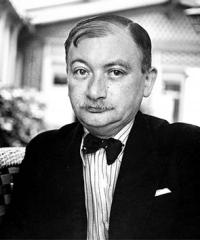
Tod im Frühling
Ein Professor, fromm und tugendhaft,
war exorbitant normal im Winter;
zur Erhaltung deutscher Manneskraft
schlief er stets mit einem Werk von Dinter;
morgens steckte er ins Stahlbad Glied um Glied,
trieb am Reck dann Weltkriegsvorbereitung,
und, fürs arisch-reine Vaterland erglüht,
abonnierte er die »Deutsche Zeitung«.
Also lebte er zur Winterszeit. –
Doch beim ersten Lied der Nachtigallen
machte er sein Teleskop bereit,
um des Nachts durch das Gebüsch zu wallen;
Minne glühte auch in seiner Brust,
wenn er eine Wade wo erblickte;
und es war sein Wille groß wie seine Lust – –
nur, daß letztere ihm niemals glückte.
Mit der Blendlaterne spähte er
nach den unverschämten Gartenbänken,
zu den deutschen Göttern flehte er,
dieses Mobiliar der Juden zu versenken;
aber Unzucht blieb, kein Rächer kam,
und vergebens betete der Keusche,
während er, moral-geplagt, vernahm
außereheliche Nachtgeräusche.
Bald begannen Nase, Aug’ und Ohr
und der sechste Sinn sich auch zu schämen – –
außer sich geriet der Professor,
und er mußte endlich Anstoß nehmen;
unter einem weißen Fliederstrauch
tat er’s, ward erregt – und fand sein Ende . . .
Streng und sittlich flog sein letzter Hauch
wie ein keuscher Fluch durch das Gelände . . .
Joseph Roth
(1894 – 1939)
Tod im Frühling
Lachen links – 9. 5· 1924
• fleursdumal.nl magazine
More in: Archive Q-R, Archive Q-R, Joseph Roth, Natural history
Thank you for reading Fleurs du Mal - magazine for art & literature